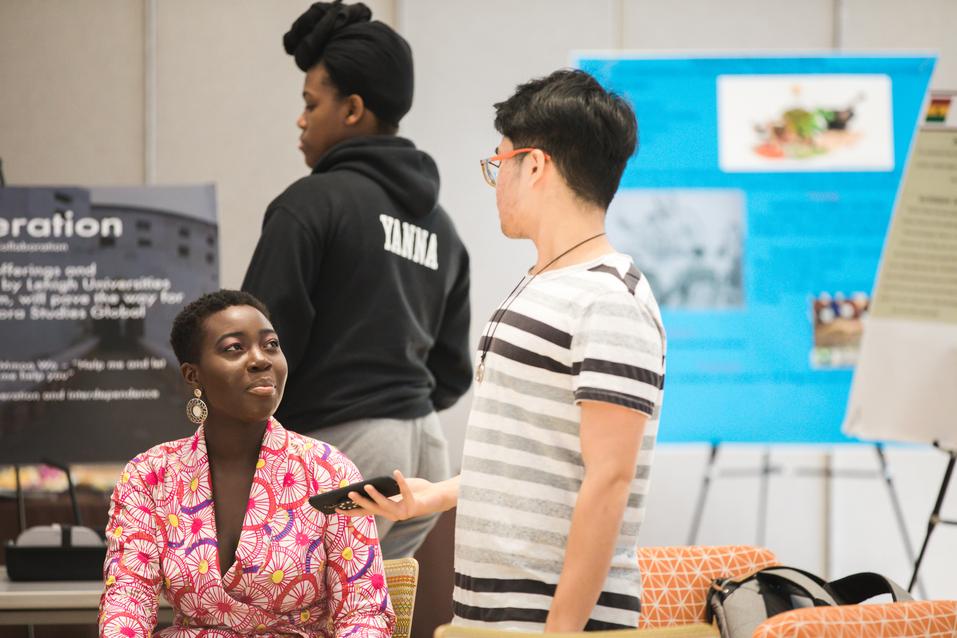Through a diverse faculty and a rich, interdisciplinary selection of inclusive and intersectional courses, Africana Studies enriches the Lehigh University curriculum by situating urgent contemporary dynamics of racial inequality, injustice, and violence within a broad historical context, preparing students to deal with contemporary challenges. The Africana Studies Program encourages students to discover cultural, artistic, psychological, social, and political resources for imagining more just communities in which all can flourish. At a moment when millions of young people are in the street affirming that “Black Lives Matter,” Africana Studies can provide an intellectual space for students to explore histories of racialization and racism to make better-informed efforts to combat racial inequality.
Purpose
The purpose of the Africana Studies Program is to engender in Lehigh students an intellectual appreciation of the life and culture of people of African descent worldwide, especially in the United States, thereby enriching the Lehigh curriculum and increasing the relevance of a Lehigh education to a culturally diverse society and world. In the best tradition of a liberal arts education, Africana Studies expands all Lehigh students’ critical understanding of their own heritage in interaction with other cultures. Lehigh’s Africana Studies program is interdisciplinary in orientation providing wide ranging foci and research interests including Hip Hop cultural studies, African-American Literature, Identity and Difference, art history, theory and method in the study of religion, critical race theory, Women, Gender, Sexuality in the African Diaspora, African-American theatre history/performance, race and culture in Africa and the African Diaspora, and so much more.
History
In the 1960s Black students across the United States demanded Africana studies programs at their universities. While a handful of dedicated faculty at Lehigh began teaching, speaking, organizing programming and hosting events on African and African American topics, it was not until 1990 that Professor William (Bill) R. Scott was hired to direct a program dedicated to these studies. Africana Studies was born. The program still struggled to provide sufficient courses, programming and events to meet the needs of Lehigh Students, although many faculty dedicated their time and energy to increasing diversity in courses offered, mentoring minority students and advising the University on how to improve these efforts. Between 2011 and 2015, a new director and a cluster of new faculty were hired to expand and invigorate the program, adding many new courses, while campus programming increased exponentially. 2020 marked the revitalization of the program with a new director and a new curriculum, which introduced experiential learning and capstone requirements. What began as the initiative of a few dedicated faculty in the 1970s has become a vibrant program that significantly impacts the intellectual and community life on and off campus.

